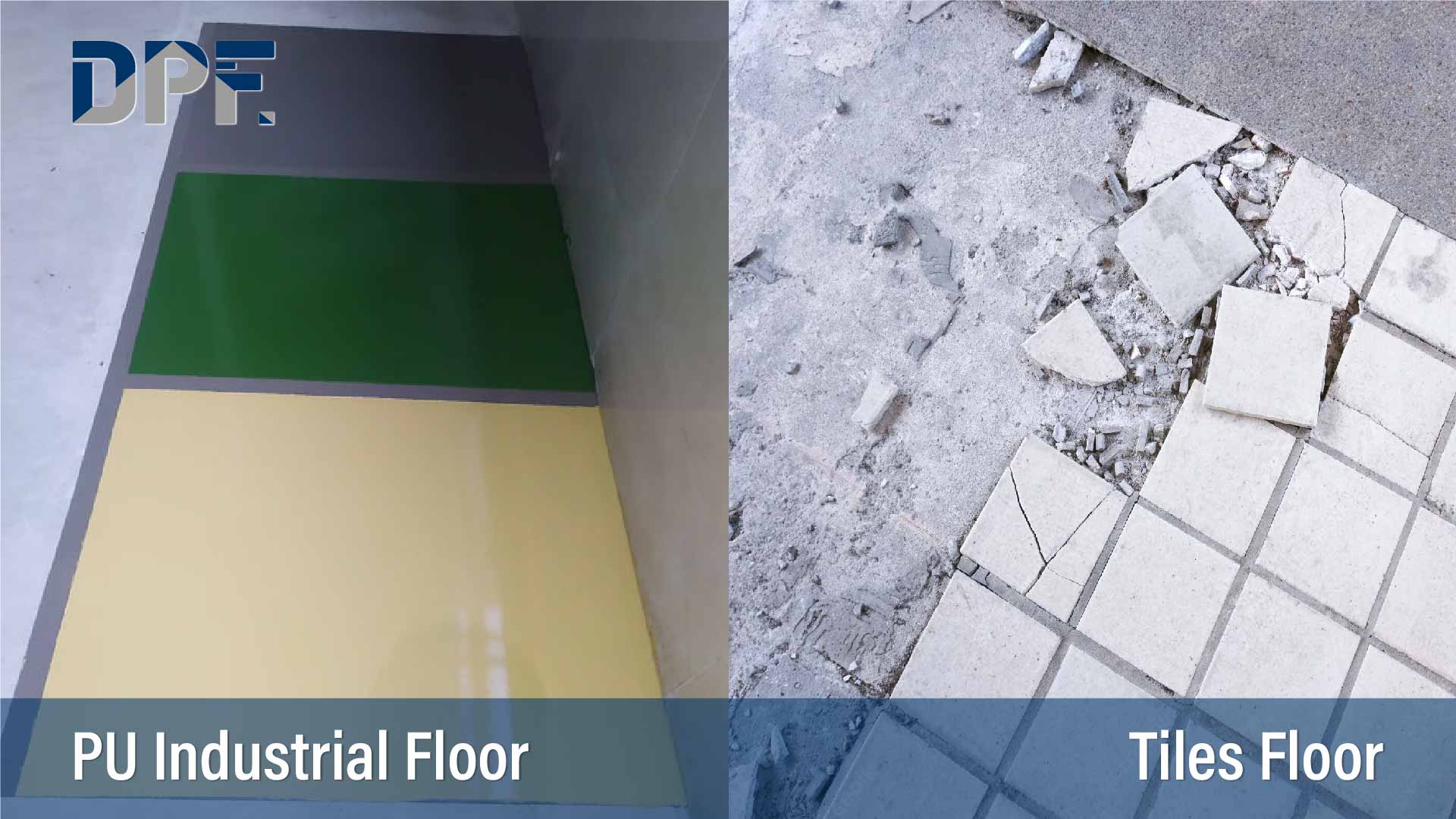PU Industrial Flooring vs. Tiles or Mosaic Flooring
Choosing the Right Option for Your Business
Introduction
When it comes to selecting PU Industrial Floor Coatings, the perfect flooring for industrial and commercial spaces, several factors need to be considered, including durability, aesthetics, maintenance, and cost-effectiveness. Among the popular choices are PU (Polyurethane) industrial flooring and traditional flooring options like tiles or mosaic. In this blog post, we will explore the key differences between these two types of flooring, highlighting their unique features, benefits, and ideal applications, to help you make an informed decision for your business.
1. Material Composition
PU Industrial Flooring: Polyurethane flooring is a liquid-applied solution that cures into a seamless, elastic, and durable surface. It is typically made of a combination of Resin, Hardener, Aggregate, and Pigment. PU flooring offers excellent resistance to chemicals, abrasion, impact, and thermal shock, making it suitable for heavy industrial environments.
Tiles or Mosaic Flooring: Tiles are hard-surfaced materials made from various materials, including ceramic, porcelain, or natural stone. Mosaic flooring, on the other hand, involves assembling small pieces of colored materials (such as glass, ceramic, or stone) to form patterns or designs. Tiles and mosaic flooring provide diverse design options but may not offer the same level of durability and chemical resistance as PU flooring.
2. Durability and Longevity
PU Industrial Flooring: Polyurethane flooring is renowned for its exceptional durability, often lasting 15-20 years or more when properly maintained. Its seamless nature eliminates joints and weak points, reducing the risk of damage and ensuring a longer lifespan.
Tiles or Mosaic Flooring: While tiles and mosaic flooring can be durable, they are more prone to cracking and chipping, especially in high-impact industrial environments. Regular maintenance is essential to extend their lifespan, but they may need replacement or repairs sooner than PU flooring.
3. Chemical and Impact Resistance
PU Industrial Flooring: PU flooring is highly resistant to chemicals, acids, oils, and solvents, making it an ideal choice for industries dealing with corrosive substances. It also offers excellent impact resistance, capable of withstanding heavy machinery and equipment.
Tiles or Mosaic Flooring: While certain types of tiles are relatively chemical-resistant, they may not be suitable for industries that handle strong acids or harsh chemicals. Additionally, tiles and mosaic flooring are generally more susceptible to cracking or breaking under heavy impact.
4. Safety and Hygiene
PU Industrial Flooring: Polyurethane flooring can be customized with anti-slip additives, providing a safer working environment even in wet or oily conditions. Its seamless surface prevents the accumulation of dirt, bacteria, and other contaminants, making it easier to clean and maintain high levels of hygiene.
Tiles or Mosaic Flooring: While some tiles offer slip-resistant properties, the presence of grout lines in tile flooring can collect dirt and germs, requiring more frequent and intensive cleaning efforts.
5. Installation and Maintenance
PU Industrial Flooring: PU flooring is applied as a liquid, allowing for a seamless installation that can cover large areas without joints. The curing process is relatively quick, minimizing downtime during installation. Maintenance usually involves regular cleaning with mild detergents and periodic resealing for optimum performance.
Tiles or Mosaic Flooring: Tiles and mosaic flooring require precise installation, with individual pieces being laid and grouted. The installation process can be time-consuming and may lead to operational disruptions. Maintenance involves regular cleaning and occasional regrouting or replacement of damaged tiles.
Conclusion
In summary, PU industrial flooring offers superior durability, chemical resistance, and hygiene benefits compared to tiles or mosaic flooring. While tiles and mosaic flooring provide diverse design options, they may not withstand the harsh conditions and demanding requirements of industrial settings. Ultimately, the choice between PU flooring and traditional flooring options will depend on your specific business needs, budget, and the level of performance required for your facility. Consulting with a professional flooring expert can help you make an informed decision and ensure your investment in flooring pays off in the long run.




